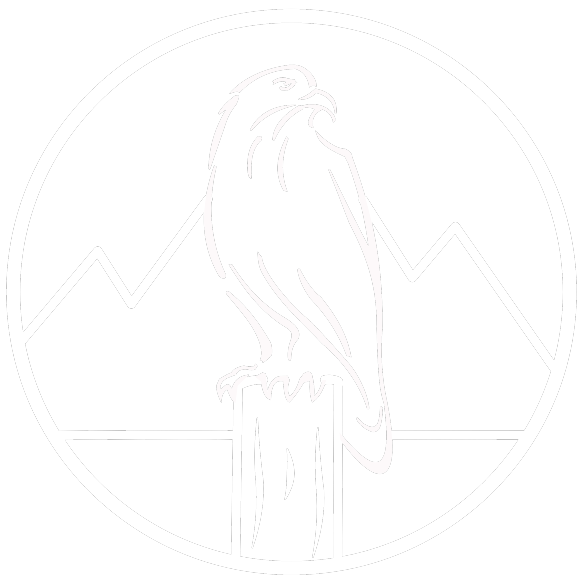
Living Into The Questions
Here, where I am surrounded by an enormous landscape,
which the winds move across as they come from the seas,
here I feel that there is no one anywhere who can answer for you
those questions and feelings which, in their depths,
have a life of their own….
…have patience with everything unresolved in your heart
and to try to love the questions themselves
as if they were locked rooms or books
written in a very foreign language.
Don’t search for the answers, which could not be given to you now,
because you would not be able to live them.
And the point is, to live everything.
Live the questions now.
Perhaps then, someday far in the future,
you will gradually, without even noticing it,
live your way into the answer.
– Rilke
It’s good to live into a question. It takes us on a quest.
Then we can let a question come alive for us, so we come alive through living into it. An answer brings an end to the wondering, to the ‘quest’ of it. An immediate answer closes fast the door to an exploration process. Then the process is over, it’s finished. That’s it – all done, move on. It goes nowhere else. This keeps the status quo as is. A quick answer leaves little room for new possibility, for hope, and for genuine change of growth.
A good question aligns us with the genuine mysteries of life. It points us towards an unknown space, and in doing so, it creates possibility and potentiality. It brings about a quest that we can live into. This gives us hope, new possibilities for life, and a pathway towards a new, unfolding future.
Beyond whatever we tend to know, as sure as we might be about our knowing, there is always something underneath – a ‘what is yet unknown’ that will be full of questions. So if we are full of good questions, we are full of life and full of hope.
This is the purpose of a good question: to open a space for exploration and new possibility within us.
When we do our inner work, we are working to mature as human beings and, when we mature, we don’t literally grow up. We grow into things. We learn and we become. We grow into becoming ourselves by living into an authentic ‘quest’.
You cannot grow further into yourself unless you know how to ask yourself a good question, and learn how to live into this question.
As you go forward from here, you are going to notice that if you don’t ask yourself a good question, you won’t have much new to think about.
When you ask yourself a good question, the first thing your mind will do is nothing. Because you won’t be able to grasp or understand a worthy question at first. And you may have no idea even how to think about your question and yet, in any given moment and all of a sudden, new thinking becomes possible.
Our egos can become agitated and disturbed by good questions. The ego wants a fast answer, something it can feel good about knowing. This has nothing to do with a venture. The ego doesn’t prefer to wrestle with and bear the ordeal of not knowing itself. The ego can be content to take care of the business of how it already knows itself.
This supports the worshiping of an ‘ego ideal’ – creating and maintaining an idealized image of the self – and this usually works out well enough for a while. But, it doesn’t take you anywhere. Sooner or later, the deeper questions start coming anyway.
And if we don’t know how to take up a good question positively, we’ll be bothered by bad questions endlessly. Questions like “Why does this same trouble always happen to me? How did I end up back here in the same place again? Why does this bad thing keep on happening to me?” This are questions that are full of self-pity, they keep us going in a recycled story.
A good question moves us forward. The purpose of a good question is to facilitate change processes. It re-arranges our thinking, so that the one who is being engaged by the question becomes a participant in something worthwhile.
How can you tell that you are really thinking authentically about a question? First of all you will be humbled by the not knowing. You won’t be formulating answers because you’re actively digesting and reflecting on what has been asked. You are doing psychological work.
It can be very humbling to realize: “Oh, I’m not really doing any actual thinking and, certainly, I’m not thinking anything new.” Repeating thoughts out loud is not thinking. That’s ruminating. Then your thoughts are thinking you. There is no active attention being paid, no curiosity being established.
When we begin to make use of our own minds, we always start with not knowing. Then we can begin to engage in the process of wondering.
As we wonder, we feel like an active participant in our own unfolding internal process. That’s how a question begins to become a quest for us to take up. We go from a noun to a verb. A good question makes you quest towards something you don’t know yet. We start growing into something beyond what we’ve already known. The ‘not knowing’ becomes an activating process. It inevitably begins to take us somewhere when we’re not handcuffed by self-judgment.
Here are a few examples of a good question. Perhaps there is one you might like to ask yourself today.
“What haunts me most about my failures? What gives me a pervasive sense of loneliness?”
“How is it that the fear and pain of rejection still bothers me so? What sustains the emotional tailspin?”
“What is my most authentic regret?”
“How might exploring my deepest regret from the past change something in my life going forward?”
“What is the one thing I really want, more than anything else in the world?”
“What is the greatest loss in my life?” “What is the most significant consequence of that loss that I still live with today?”
“What can I do for you right now?”
And the default question:
“What is the question you have always wished someone would ask you, but no one ever did?”
———————————————————————————————————
These are good questions. They don’t have immediate answers; they have quests to be taken. When your first response is, “I’m not sure. I have no idea. I don’t know yet”, then the journey begins, the active exploration process begins.
If we have unconscious tendency towards dissociation and self-abandonment, we won’t want to stay with the question.
Sometimes we don’t want to stay with uneasy explorations unless someone outside of ourselves tells us what to do. It is easy to externalize and believe in an outer authority who can make the path clear and the way easy for us.
So here is where we ask ourselves the question, “Why can’t I bear being unsure about where I am going, what I am doing? What exactly is unbearable to me about feelings of uncertainty?” For each of us it will be different.
But a good question will make you feel like you’ve just become an active participant in going beyond what you know, engaging in a maturation process, and not just a passive observer of turning to somebody who is going to have answers for you.
Because if you’re given an external answer to your own life challenges, you won’t grow. You have to be willing to think and wonder for yourself, but not by yourself. Having an active witness who accompanies you can make all the difference in the world.
When two people are willing to be together in an unknown territory, while neither one of them know anything for sure, new potential has the greatest possibility to emerge.
How was that not full of hope, if they can only withstand being in the unknown together, for whatever time that takes? It would be inevitable that something new will come from that kind of space.
Many of us have an ancient idea in our heads that we can’t bear certain negative events – I can’t bear how sad I will be, I can’t bear my sense of helplessness – but it’s really startling to learn that sometimes what we really can’t bear is genuine hope. It makes us feel too vulnerable to be that open, to give ourselves over to new possibility.
We sometimes can’t bear new possibility very well because we can’t bear to fail (again), which is why things so quickly feel impossible. And obviously we can’t bear failure we can’t stand anything about not knowing, and that stops us from growing.
In my clinical supervision work with therapists, at a certain point in our shared exploration of what they are wrestling with, I would say to them, “And now what is your question?” If they don’t know how to formulate good questions, they can’t grow, they can’t deepen into the process. There’s nothing to learn.
But if you can make the transition into calling yourself into questions, and are working with people who can also get together to be with questions, not just to get answers, everything becomes filled with a new possibility, with creative ideas, with potentiality, and there’s also arriving at answers too.
But you don’t engage in the question for an answer, you do it to grow and learn. So we learn how to quest by asking good questions, like “Who am I?” ”Where I am going?” Who is going with me?” (To be asked in that order, by the way.)
Can you begin to feel how a good question gets you underneath everything else? There’s no answer to be found in that, there’s a mystery in that process, something that creates an opening, something novel to be explored. That’s what imbues entering the unknown with the spirit of adventure.
So perhaps today is the day – the day that you think about questions differently than before, and learn to think differently about the questions that matter most to you, which is really enlivening and exciting.
– MICHAEL MERVOSH
—————————————————————————————————————–
